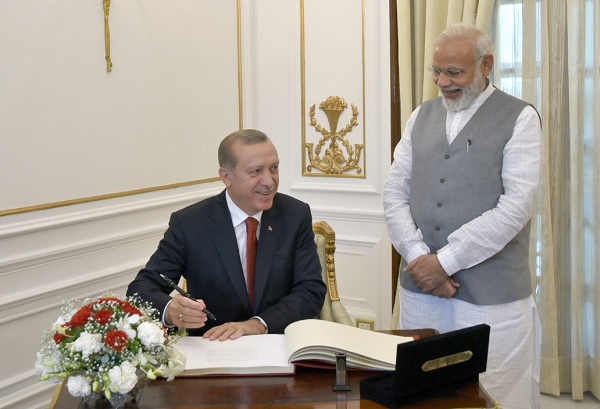
The President of the Republic of Turkey, Recep Tayyip Erdogan signing the visitors’ book, at Hyderabad House, in New Delhi. The Prime Minister, Narendra Modi is also seen.
New Delhi: (IANS) Turkey, a close ally of Pakistan, on Monday extended “full solidarity” with India in battling terrorism even as New Delhi virtually sidestepped visiting President Recep Tayyip Erdogan’s suggestion for a multilateral dialogue on resolving the Kashmir issue.
After extensive talks with Erdogan, in which the fight against terrorism formed a major part, Prime Minister Narendra Modi said both the countries have agreed that “no intent or goal, no reason or rationale can validate terrorism”.
Modi said that he and Erdogan “agreed to work together to strengthen our cooperation, both bilaterally and multilaterally, to effectively counter this menace”.
There was no mention of Jammu and Kashmir in the brief statements made by the two leaders at a joint address to the media after delegation-level talks and one-on-one talks between the two leaders.
On his part, Erdogan said that Turkey would always be by the side of India “in full solidarity” in battling terrorism.
“Terrorist organisations want to launch their propaganda over the suffering of people and are willing to a create future for themselves out of victims’ pain,” he said.
Both the leaders discussed the situation in their respective regions and on terrorism. The double standards in dealing with the problem and the need for early adoption of the India-initiated Comprehensive Convention on International Terrorism (CCIT) in the UN also came up in the talks.
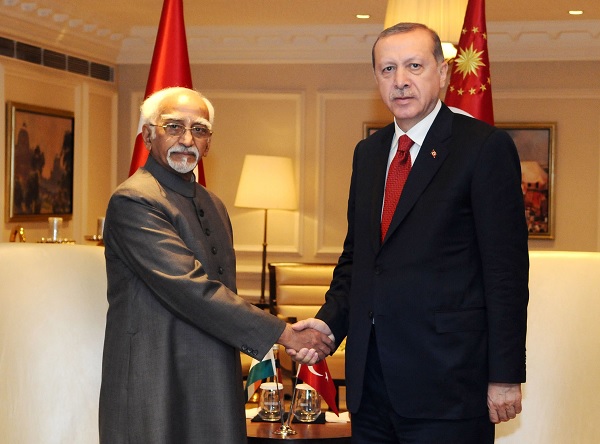
The Vice President of India, M. Hamid Ansari and the President of the Republic of Turkey, Recep Tayyip Erdogan, in New Delhi.
Turkey conveyed its support for India’s bid for membership of the Nuclear Suppliers Group for which Modi expressed his gratitude.
He said that he and Modi also discussed the failed coup attempt in Turkey in July last year in which over 300 people, both civilians and security personnel, lost their lives.
The Turkish government has blamed the US-based preacher and political activist Fethullah Gulen for the coup attempt.
Erdogan expressed hope that India would expel all institutions linked to FETO — or the Fethullah Gulen Terrorist Organisation that Turkish authorities describe the Gulenist network as.
He said that Turkey saw India playing an important role “in every international development that is unfolding in India”.
External Affairs Ministry spokesperson Gopal Baglay later told the media in reply to questions that India put across its views on Kashmir to the Turkish side.
Baglay said India conveyed its position that it was always ready for talks with Pakistan on any issue in an atmosphere of peace.
Interestingly, Erdogan in a TV interview ahead of his arrival here had suggested that there could be multilateral dialogue to find a solution to the Kashmir issue. India has always maintained Jammu and Kashmir was a bilateral issue and has ruled out any third party mediation.
“The nations of the world, therefore, need to work as one to disrupt the terrorist networks and their financing and put a stop to cross-border movement of terrorists,” Modi said in his address to the media with Erdogan by his side.
“They also need to stand and act against those that conceive and create, support and sustain, shelter and spread these instruments and ideologies of violence.”
During the talks, which extended by nearly two hours beyond the scheduled 60 minutes, India and Turkey agreed to boost bilateral trade from the current level of just over $6 billion and expressed the resolve to fight the global menace of terrorism together.
“President and I are clear that the strength of our economies presents an enormous opportunity to expand and deepen commercial linkages between our countries,” Modi said while addressing the media.
The Prime Minister said that at the level of the two governments, “we need to approach the entire landscape of business opportunities in a strategic and long-term manner”.
“India and Turkey are two large economies,” he stated.
“Our bilateral trade turnover of around $6 billion does not do full justice to convergences in our economies. Clearly, the business and industry on both sides can do much more.”
Modi invited Turkish businesses to tap the “diverse and unique opportunities”, including infrastructure requirements and Smart Cities programme, available in India.
“We would like to encourage stronger partnership of Turkish companies with our flagship programmes and projects, either on their own or in collaboration with the Indian companies,” he said.
Stating that the current bilateral trade volume of just over $6 billion was “not enough for us”, Erdogan called for increasing this figure to at least $10 billion.
“We have discussed cooperation in the areas of energy cooperation and infrastructure development,” the Turkish President said.
Following Monday’s talks, the two sides signed three agreements, including a cultural exchange programme, a memorandum of understanding (MoU) between the Foreign Services Institute of India and the Diplomacy Academy of Turkey, and another MoU on information and communication technologies.

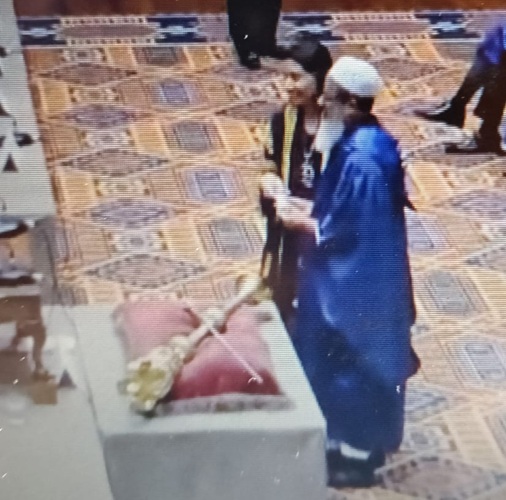
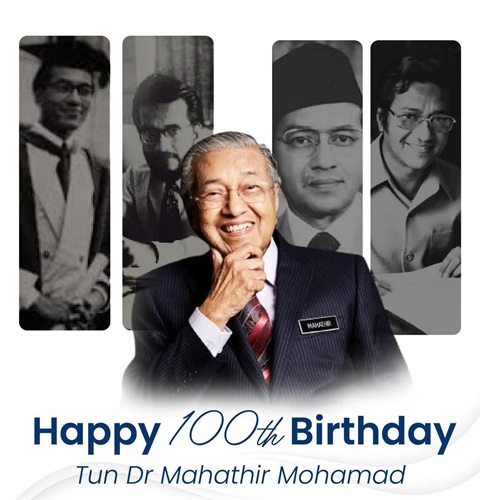
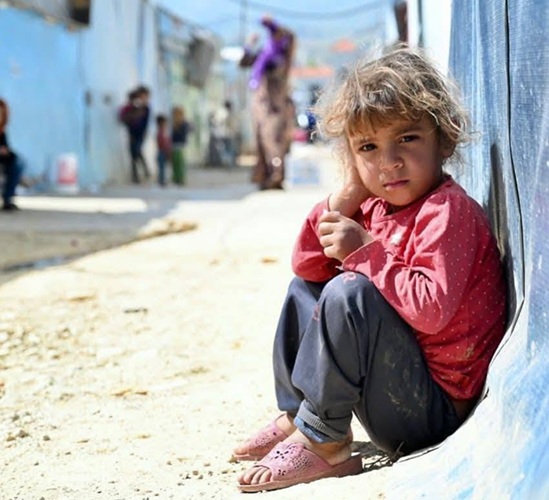
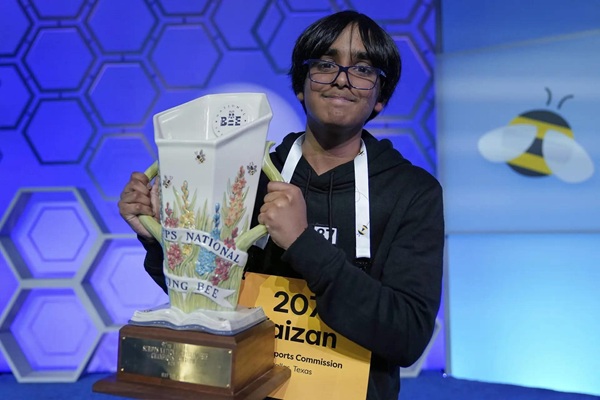
0 Comments